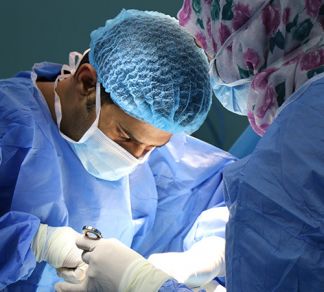 Choosing whether to donate your organs after your death can be unsettling. After all, no one wants to think about their death, and it can feel uncomfortable thinking about your organs in another person. When you get your driver's license, you were likely asked whether you would like to be an organ donor. You may have been hesitant, you may have said yes out of guilt, or you may have declined due to being uncomfortable with the idea. However, it's important to remember that there are thousands of people on waitlists for organs. Some of these people have been waiting for years and don't have much time left. If you are on the fence about whether or not to donate your organs, here are some reasons you should consider it.
Choosing whether to donate your organs after your death can be unsettling. After all, no one wants to think about their death, and it can feel uncomfortable thinking about your organs in another person. When you get your driver's license, you were likely asked whether you would like to be an organ donor. You may have been hesitant, you may have said yes out of guilt, or you may have declined due to being uncomfortable with the idea. However, it's important to remember that there are thousands of people on waitlists for organs. Some of these people have been waiting for years and don't have much time left. If you are on the fence about whether or not to donate your organs, here are some reasons you should consider it.
It Can Save a Life
Of course, one of the greatest things about organ donation is that you are often saving a life. Almost two dozen people die every day because they did not receive the organ they needed in time, so the need for organ donors is great. With over 100,000 people waiting, you could easily save lives. In fact, when you agree to donate your organs after your death, you have the potential of impacting more than one life. For example, your heart, liver, and kidneys could go to three separate recipients. Think about how amazing it would be to impact people's lives like that even after you're gone.
It Can Help With Mourning
Those who are related to organ donors often report that knowing the person who passed was an organ donor provided them with a sense of peace. It can be comforting to know that even though your loved one is gone, he or she was able to save many lives. For some, it can be helpful to meet the recipient of the organ, but this isn't always possible; it depends on the willingness of both the donor's family and the recipient. Still, it can be a step in the healing process to get to meet the person whose life was saved thanks to the organ your loved one donated, so it's something that should be considered.
It's Free
You might be concerned about incurring expenses by agreeing to be an organ donor. After all, operations like this must cost a lot of money, even if they occur after you are gone. The good news is the donor and the donor's family are not responsible for any of the medical costs.
Live Organ Donation
Sometimes, organs can be donated while the donor is still alive. For example, you can live with only one kidney, and the liver has the amazing ability to regenerate. It is the only organ in the entire body that has this ability. Because of this, you can donate up to 60 percent of your liver to someone in need. Typically, live organ donations only happen between family members or perhaps close friends. This can be tricky because you have to be a perfect match in order to be eligible to donate the organ. With live organ donation, there are risks that should be considered:
- Complications with anesthesia
- Bleeding problems
- Infection
- Pain and a long recovery process
These are risks that accompany any surgery. The chances of these risks depend on your overall health, medical history, and organ that you are having donated. Your doctor will be able to let you know whether this is something he or she recommends.
As you can see, donating your organs after your death has the ability to save the lives of several people. It can provide comfort to your family, and there is no cost involved. Live organ donation does have risks, so weigh these carefully before deciding whether you would like to donate an organ to a friend or family member while you are still living.
Add Your Comment